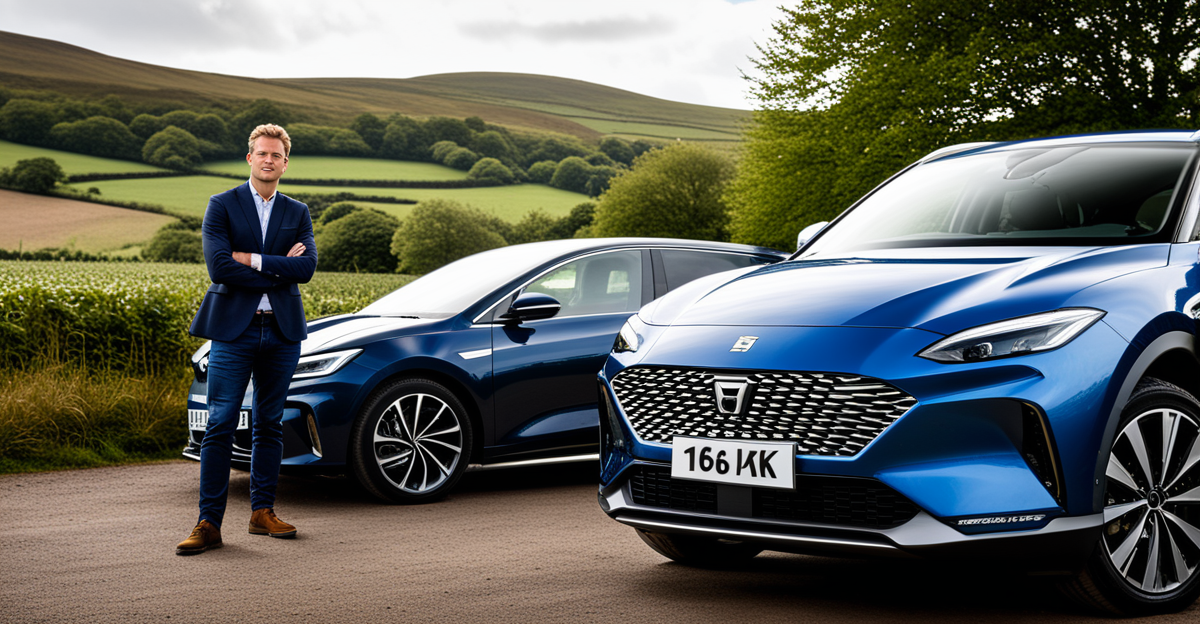Eco-Friendly Innovations Redefining the UK Automotive Landscape
The UK is at the forefront of eco-friendly automotive innovations, leading significant progress in sustainable car technologies. A major breakthrough is happening in the realm of electric vehicles (EVs), where advancements in battery technology are pushing the boundaries of range and charging speed. Recent developments have improved battery energy density while reducing costs, making electric cars increasingly accessible and practical for everyday use. This evolution directly supports cleaner transport by minimizing reliance on fossil fuels.
Beyond electric propulsion, the UK is investing heavily in hydrogen fuel technology and other alternative propulsion systems. Hydrogen cars leverage fuel cells combining hydrogen with oxygen to generate electricity, emitting only water vapor as a byproduct. This not only reduces carbon emissions but offers faster refueling times compared to electric battery recharging. The growth of hydrogen infrastructure, although in its early stages, is part of a broader eco-friendly shift in automotive propulsion methods within the UK.
Manufacturers are also embracing the use of sustainable materials in car production, reflecting a holistic approach to environmental responsibility. These materials include recycled plastics, bio-based composites, and renewable textiles, which decrease the carbon footprint associated with vehicle manufacturing. Adopting such materials ensures that eco-friendly automotive innovations extend beyond just propulsion, incorporating the entire vehicle lifecycle.
By integrating cutting-edge electric and hydrogen technologies with sustainable manufacturing methods, the UK is shaping a cleaner automotive landscape that aligns with broader environmental goals. These clean vehicle advancements showcase the nation’s commitment to sustainable mobility and set a benchmark for others to follow.
Government Policies Accelerating Automotive Sustainability
The UK government plays a pivotal role in fostering eco-friendly automotive innovations UK through targeted policies and incentives. Central to these efforts is the implementation of strict emissions regulation UK, which mandates progressive reductions in vehicle carbon output. These regulations compel automakers to innovate and invest in sustainable car technologies UK to comply with environmental standards aligned with the UK’s net-zero ambitions.
One of the most effective tools for accelerating adoption has been the provision of green transport incentives. These include grants and subsidies aimed at lowering the financial barriers for consumers purchasing electric or hydrogen vehicles. For example, substantial subsidies on EV purchases and tax breaks for low-emission vehicle owners help stimulate market demand. This strategy directly supports the proliferation of clean vehicle advancements by making eco-friendly options more accessible to the public.
Such government policies are designed with a dual approach: establishing mandatory emissions targets while concurrently promoting market uptake through economic incentives. This comprehensive framework encourages innovation within the automotive industry, pushing manufacturers towards greener production lines and fueling infrastructure expansion. As a result, the UK’s automotive sector is galvanizing toward a cleaner, more sustainable future, propelled by clear governmental direction and support.
Key Trends and Industry Responses in the UK Market
The UK car industry trends reveal a decisive shift toward sustainable mobility UK, with major manufacturers embracing eco-friendly automotive innovations UK as a central strategy. Leading automakers are integrating sustainable car technologies UK by developing electric and hybrid models tailored to UK market demands. These companies prioritize reducing vehicle emissions while enhancing performance and affordability, reflecting their commitment to cleaner transportation.
Collaboration between industry leaders, government bodies, and academic institutions plays a vital role in accelerating innovation and adoption. This tripartite partnership fosters research and development, enabling the rapid commercialization of clean vehicle advancements. For example, joint projects focus on improving battery efficiency and expanding hydrogen fuel infrastructure, demonstrating a holistic approach to sustainable mobility in the UK.
Startups are also making a substantial impact, driving innovation from the ground up with niche technologies and novel business models. Their agile development processes and focus on next-generation solutions complement established manufacturers’ efforts. Together, these diverse players shape a dynamic landscape, positioning the UK as a key hub for ecologically responsible automotive progress.
Environmental Impact and Societal Benefits
In assessing the environmental impact UK automotive sector, eco-friendly automotive innovations UK play a crucial role in significantly reducing carbon emissions. By transitioning from conventional petrol and diesel vehicles to those powered by electric and hydrogen fuel technologies, the UK is achieving measurable declines in greenhouse gas output. These clean vehicle advancements are essential in meeting national and international climate goals. For instance, electric vehicles produce zero tailpipe emissions, directly lowering the sector’s carbon footprint, while hydrogen fuel cell vehicles emit only water vapor.
Beyond reducing emissions, these innovations contribute to meaningful air quality improvement cars UK. Urban areas benefit especially from decreased levels of nitrogen oxides (NOx) and particulate matter, which are traditionally emitted by internal combustion engines. This improvement in air quality leads to better public health outcomes, reducing respiratory issues among residents and lowering healthcare costs linked to pollution-related illnesses.
Sustainability benefits extend further through responsible material usage and vehicle lifecycle management. The incorporation of recycled and bio-based materials in car manufacturing reduces raw material extraction and waste. Moreover, efficient recycling and end-of-life vehicle programs help mitigate environmental harm. By embracing a circular economy approach, the automotive industry supports sustainable resource use, decreasing overall environmental strain.
Overall, sustainability benefits linked to eco-friendly automotive innovations are closely tied to their ability to cut emissions, enhance air quality, and promote resource efficiency. These gains exemplify how technological progress in the automotive field translates to broader societal advantages, fostering healthier communities and advancing the UK’s environmental objectives.
Consumer Adoption and Challenges to Mainstream Integration
Understanding UK consumer adoption electric cars involves examining both the increasing enthusiasm for eco-friendly vehicles and the obstacles slowing widespread uptake. While sales of electric and hybrid models continue to rise, several barriers to green car ownership persist. High upfront costs remain a significant deterrent despite falling battery prices and government subsidies. Many consumers find the initial investment challenging compared to traditional petrol or diesel vehicles.
Another critical challenge is the uneven availability of public charging infrastructure. This limitation contributes directly to range anxiety, where potential buyers worry about running out of power during daily travel or longer trips. Although urban areas are seeing improving charging networks, rural regions lag behind, restricting consumer confidence in fully embracing electric mobility.
Public perception also plays a decisive role in public perception eco-cars UK. Educational campaigns have begun to shift attitudes positively by emphasizing environmental benefits and total cost savings over time. More consumers are valuing sustainability but seek clearer information on practical aspects like charging time, maintenance, and vehicle lifespan.
Addressing these challenges requires a multifaceted approach:
- Expanding accessible and fast-charging infrastructure nationwide
- Continuing financial incentives to offset purchase and running costs
- Enhancing public awareness through targeted education on benefits and overcoming misconceptions
As solutions develop, the UK market is expected to see stronger alignment between consumer readiness and available clean vehicle advancements. This progression is vital for achieving the UK’s ambitious environmental goals while making eco-friendly driving an everyday reality for more people.
Future Outlook: Forecasts and Expert Insight
The future of UK eco-friendly automotive is poised for substantial growth, driven by continuous innovation and strong policy frameworks. Experts forecast a transformative shift in automotive technology by 2030, anticipating that automotive technology 2030 UK will feature widespread integration of advanced electric drivetrains, improved hydrogen fuel solutions, and enhanced sustainable manufacturing practices.
Industry leaders emphasize that expert forecasts cars UK consistently highlight the importance of robust research and development investment. Continued innovation in battery chemistry, energy density, and fast-charging infrastructure will redefine consumer experience, reducing barriers to green car ownership. Meanwhile, hydrogen’s role as an alternative propulsion system is expected to expand, supported by intensifying governmental support and infrastructure growth.
Moreover, international collaboration is critical to achieving these milestones. Sharing technological breakthroughs and harmonizing regulations enable the UK’s automotive sector to maintain global competitiveness within the evolving eco-friendly landscape. This global approach complements domestic efforts rooted in UK automotive government policy, providing a strategic roadmap toward net-zero emissions and sustainable automotive transformation.
In sum, the future of UK eco-friendly automotive rests on synergizing policy, technology, and market acceptance, with expert forecasts cars UK underscoring a transition toward cleaner, smarter vehicles by the end of the decade.








